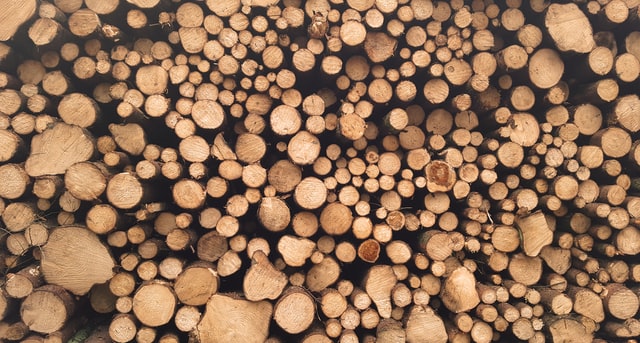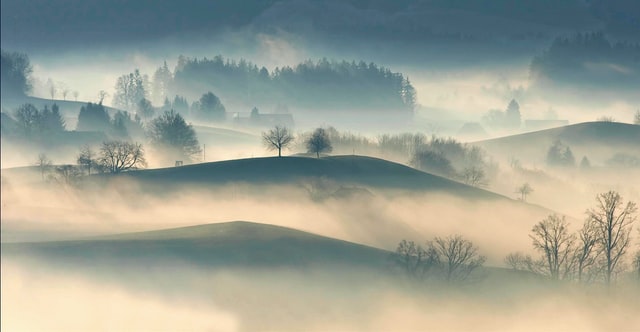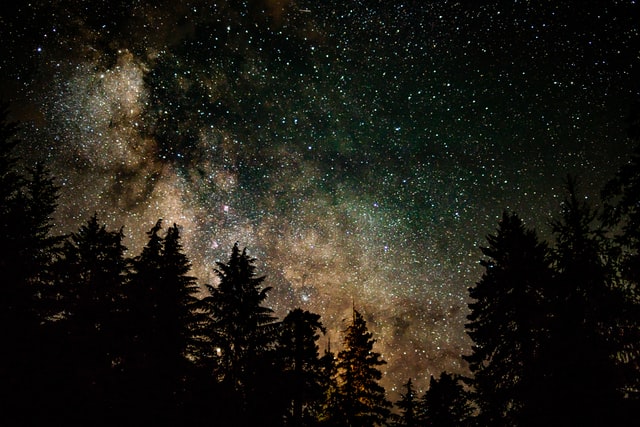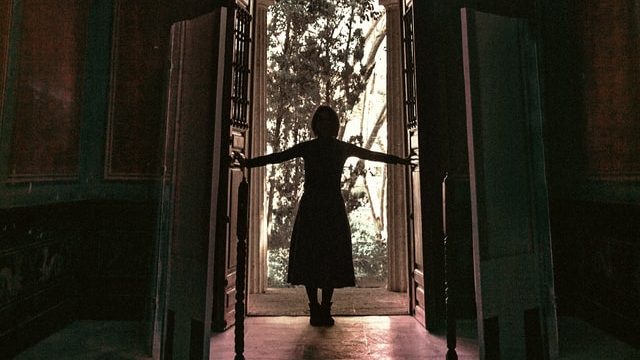Something comes first in a coming-of-age novel. Like a living thing, it is only small and simple for a moment. It expands and grows more complex with each word. Writing has been an exquisite task, such that I might wish drafting to never end.
Revising the opening yet again, has reinforced the mind’s nonlinear capacities. Like remembering and reflecting, story pulls time into new alignments. The new opening, only four lines long, is more like a poem. Brevity lets me dabble in my craft: tense, point of view, pronouns, semantics, sensory details, language translation, inference, paragraphing, spacing, and the quiet construction of characters and readers. Its deixis is endlessly interesting to me. Sometimes in a tiny collection of sentences, the speaker’s identity, its time and place, make the reader hustle.
Image: Photo by Clint McKoy on Unsplash
“I feel totally curious and alive and in control. And almost … magnificent, when I write.”
Toni Morrison
I’m also a reader, and these days, Toni Morrison and Richard Powers sprinkle their wisdom into my thoughts.

In the new opening, there is a character we may never “see” except in the dark hickory grove, the changing glow of his pipe, and the scent of his tobacco.
“Uncle. Awi?”
He turned in the dark hickory grove beyond the corral. The cherry reddened in the bowl of his pipe.
Changing the Guard
The story flows through him, an uncle, the mother’s Cherokee brother, in the same way our lives take the trajectory given to us by ancestors whom we never know or remember. We can infer from our own lives how fully they gave themselves to the young. Time passes, and like a changing of the guard, the former slip out of sight. They are like relatives who pass away or former tenants of the property never seen again, unless we put in the effort to remember them.
“Uncle. Awi?”
He turned in the dark hickory grove beyond the corral. The cherry reddened in the bowl of his pipe.
“You’re watching over the girls?”
His answer was a sweet grassy exhale.
Hindsight might tell the reader that a civilization changed the night their brother came to the cabin door. The young women, Mariah and Eliza, pass out of the hands of a Cherokee mother and her brother in a matrilineal society. In this society uncles, not fathers, care for the young and insure stability. Their uncle has been watching over them for months.
“Uncle. Awi?”
He turned in the dark hickory grove beyond the corral. The cherry reddened in the bowl of his pipe.
“You’re watching over the girls?”
His answer was a sweet grassy exhale. He’d been waiting for me.
“She’d be grateful. Wado. Time to see more than these woods. You can go home.”
But that guard is changing. The land and rivers, cut up as they are, cannot sustain their mother’s fur trade. Their half-brother and father’s servant, Otis is taking them into town to become “ladies” in their father’s world. Their husbands are not of their choosing, but of their father’s choosing, influenced by his need for economically productive sons-in-law who can own land and lay down the law. This is patriarchy. This is a society that supported 400 years of slavery and fed labors and lands to the fire of economic growth. An egalitarian marriage is not indicated, nor are sustainable uses of the land.

“People aren’t the apex species they think they are. Other creatures-bigger, smaller, slower, faster, older, younger, more powerful-call the shots, make the air, and eat sunlight. Without them, nothing.”
Richard Powers, The Overstory
No Illusions
A few days later, Otis runs through a conversation he expects to have with their father and his enslaver, Jebediah Roche, now a lawmaker in the Missouri state capital.
Then I say, “You know the Stoneville land cannot sustain a family, not with its thin soil. The fur trade dried up years ago.”
He says, “Course I know that. The roads and farms drove the beaver west. Nothing can live without water. What, you want beavers to live and not people? Livestock could turn a profit,” he says.
I say, “But only a few head. And require the felling of trees which lets the soil run off.”
He argues, tells me what he’s done for landowners, their need for public works--roads, landings, and schools. How great he is in the state assembly, how the state could not function without him. “There must be a way to make a profit,” he says, “so that a man’s efforts make a difference. All the sweat of building this nation adds up to building a nation.”
“Yes, sir,” I say.
Otis has no illusions. He knows whose sweat is building the nation, felling its trees, and building its roads. The siblings saw a chain gang, imprisoned labor in action, and enslaved masons building the university. George, as the new son-in-law, is expected to own and manage the land. Married to him, Mariah would see the destruction of what she knows and loves, and the furtherance of human enslavement, including her own unrecognized labor.
But all he’s got in Stoneville is a quarry for gravel and a future son-in-law named George who’s called Box a’ Rocks with his brawn and particular head for business. He’d need a chain gang heaving picks, or better yet, a mechanical stone crusher. Feeding George, his babies, and his gang is Mariah’s duty to her daddy until she dies.
All this, now on page 40, is quietly prefigured in the first brief opening scene. The changing of the guard shifts the economy and reconfigures an entire relationship to the land.

“What you make from a tree should be at least as miraculous as what you cut down.”
Richard Powers, The Overstory
Balancing Between
At the first go, the reader may think that this novel is a “charming” love story, but it is a rocky one. Every detail of the scenes in the cabin and on the foggy hillside describes the relationship to wildness that is receding into the past.
Eliza and Otis were inside laughing and warming the cabin. They took away the chill I brought in, and though I rarely smiled as much as they did, we were happy. I brought out the food: dried fruit, rabbit jerky, and goat cheese. Otis laughed when I added the purple blossoms. “You down to eating flowers now?” But he pushed them into the cheese and ate them fast enough.
Every story needs an arc, experts say. K. M. Weiland discusses this in her recent post, The Two Haves of the Inciting Event. The arc leads the reader from one emotional value to another. Does the opening of The Compromise introduce an upward arc or a downward arc? My most difficult work is to make it do both without being overly destabilizing.
I woke to sounds of wild things stirring before the sun was up. My last dream was of a barn swallow hovering, balancing between upward and downward arcs. Then she let the current take her. Uneasy times a’ coming. I inched into my coat to let my brother and sister sleep. I tiptoed outside with Nanny Goat to let her forage and slipped back in to get my boots and the knife.
Fog had settled on the hillside and filled the hollow. With a lantern I organized the tools in the shed in case I had to be away for months, or even years. At first light, I was in the orchard. Late March buds were tight little brown fists, lots of them spiraling on every branch. “Come home today, Mother,” I whispered.
Mariah does this work of balancing with me. I seek to do what Powers claims is possible, to make from the tree something at least as miraculous as the living tree. This may be echoed by Toni Morrison. “The ability of writers to imagine what is not the self, to familiarize the strange and mystify the familiar, is the test of their power,” Morrison writes in Playing in the Dark: Whiteness and the Literary Imagination (15). I think it is a choice to let the current take the writer. It is in the choices to familiarize and mystify.
“Make up a story. For our sake and yours forget your name in the street; tell us what the world has been to you in the dark places and in the light. Don’t tell us what to believe, what to fear. Show us belief’s wide skirt and the stitch that unravels fear’s caul.”
Toni Morrison, Nobel Prize speech in 1993
An analysis of history should be as complex. The Origin of Everything is a new US history series on PBS. In one segment, historian and host Danielle Bainbridge explores the complicated history of the European enslavement of Indigenous peoples. When sufficiently complex, literary writing refrains from telling anyone what to believe or fear, so I try to enliven those complexities and ambiguities as I find my way through the morning fog.

Toward Meaning and Equality
The people who made decisions in this developing and patriarchal society were not necessarily cruel. They were probably as arrogant and naively idealistic as we are. What’s important is that readers hear the tones of authenticity and irony in the voices of the characters and infer their own meanings. Protagonist, Mariah is prepared to adapt to her arranged marriage, but living between cultures gives her critical insight.
We knew this was how it would go, our father choosing the men we would marry. But Mother said in her family, a woman got the man she wanted, or maybe not want any at all. Mothers and their brothers raised the children when they came. Daddy said that was the trouble with heathens and we were Chirstians, so he’d make important decisions. He said, “If anyone wants to argue, they can leave the United States and seek their riches elsewhere.”
Mother agreed and said, “It’s the law in this country that offspring belong to their fathers. That means men have to do right by their children. I have you girls to consider,” she said. “I want you to have more than I did.”
Readers can recognize in the characters how dreams are misunderstood, enabled, or denied. Women could not gain custody of their children in the 1840s, and a family was a practical economic unit and a unit of labor. Birth and death records were coming into practice, which probably curtailed the worst wildness. Authoritarianism and ethnocentrism were in dynamic opposition to democratic ideals. Laws provided security and enabled prosperity and gradually increased our rights and freedoms. The laws which denied rights to some and privileged others changed as society found its way toward equality. Humanism and its reasoning gradually enabled equal access to social goods. It continues to do so. My novel attempts to show this reality, estranged by time and circumstance.
Recursive Reading
Reading as well as writing this way takes effort. We have to remember and revise the importance of what came before. It can be a guessing game: is this detail part of the outer ring of influence or an inner one? Will that change? Will the image return embedded in a semiotics of things? That onion, the pinecone, an atomic egg. Can I trust the writer to make meaning in every word, or will I exhaust myself doing work without reward?
The opening scene is a miniature, like a key in the latch of a door, that will not be opened from the beginning by any first-time reader. Its pattern will only emerge through hindsight. This reading is recursive. I do it all the time, reread and ponder. Who but a reader of a physical book is likely to reopen the book to reread the opening lines, or any section, to test her hypotheses? A teacher would do this when answering the question, how is meaning made in this text? Teachers watch texts grow and change under their eyes as they teach it repeatedly. And the garden of readers renews every year.
“We die. That may be the meaning of life. But we do language. That may be the measure of our lives.”
Toni Morrison

